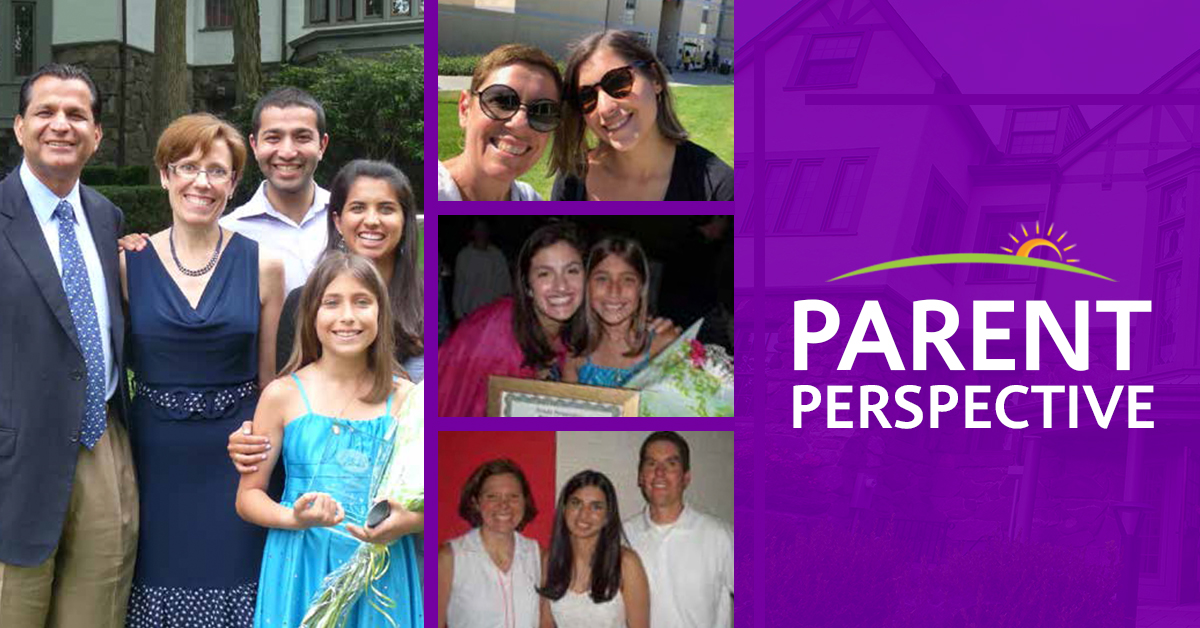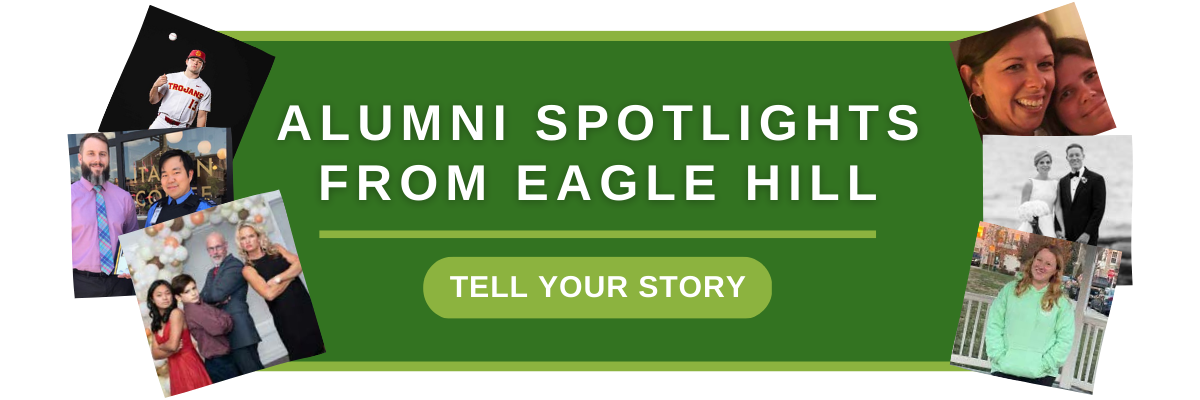Meet Lucy and Ramesh Karnani—proud parents of two Eagle Hill School graduates, Julia & Rebecca. Their daughters' lives were transformed by their time at Eagle Hill School.
Find out how this exceptional institution made an incredible difference and set them up for success!
What brought you to Eagle Hill?
Lucy
Julia was attending another school, and it became apparent that she had some learning difficulties. We started to implement a whole variety of interventions, but it became clear that the traditional school environment was not the right fit for her.
She was having tutoring almost every day. What they created was a “patchwork quilt” solution, which was both inadequate and exhausting for Julia. We are eternally grateful that we found Eagle Hill.
Ramesh
She wasn’t happy at school and all the extra-curricular work required to try and keep up. That is why we decided that we needed to find a school that understood her learning differences and could support her more effectively.
How did Eagle Hill assist Julia?
Lucy
The first year, grade five, was very difficult for her. There was a lot we still needed to learn about how Julia saw the world and functioned within it. The Eagle Hill faculty were invaluable in helping us.
We went through an extensive assessment process that included daily reports from each of her teachers for weeks on end to which everyone contributed so willingly. As a result, we gained a far greater insight not only about her learning needs but also her environmental needs.
Tell me about Julia's transition to the boarding program in sixth grade?
Ramesh
For me, the most difficult moment was explaining to Julia why we thought that a boarding program would be good for her when we lived less than three miles from the school.
Eagle Hill did a great job explaining it to Julia and convincing her that she would benefit from living at Eagle Hill—the structure the boarding program provides, the environment, the supportive ambience. Helping Julia understand she needed that structure was invaluable.
We are big fans of the boarding program.
How did Julia grow during her time in the boarding program?
Lucy
She was 12 when she began in the program. We had learned she had a nonverbal learning disorder as well as various learning differences, and that manifested for her as social anxiety and other behavioral challenges.
By the time she left the boarding program, she was very typical for a 14- or 15-year-old – socially and emotionally. I absolutely credit the boarding program for that. Interestingly, when we were talking to Julia last night about the program, she brought up the benefit of the structure.
We were told at the time, it is very difficult to provide a clear, absolute structure in a family environment where there are complex dynamics because we have other children… If it’s what your child needs, [the boarding program] is probably the most outstanding program of its kind.
Tell us about your daughters' education after Eagle Hill?
Lucy
Eagle Hill has been very helpful in advising and guiding us in terms of where Julia attended after Eagle Hill. She went to the Forman School, which was an excellent fit for her needs. In Bec’s case, we recognized there was something not typical in her learning style at a very early age and so we had her assessed.
She attended kindergarten through grade two at another school, but she needed tutoring to stay at a pace. And so, we were very grateful when she was able to attend Eagle Hill from grade 3. She was socially confident, but the tailored classes, by subject, really built her confidence as a learner. The absolute standout thing for her was that she developed the skills to advocate for her learning needs—skills she still draws on today.
We later moved to Australia, and initially we decided not to say too much about Bec’s learning issues at her new school to allow her grade teacher to develop her own opinion of her.
But, Bec—of her own volition—would say to her grade teacher, “Oh, I need to sit in the front row” or “I need this to learn.” So right from the beginning, she was able to advocate for what she needed, for which we are very grateful and proud!
Ramesh
We discovered the school was not as advanced as Eagle Hill in terms of identifying children with learning differences. They had far less experience and therefore difficulty in fully appreciating Rebecca’s learning differences and how to support her. I must say for Rebecca to advocate for herself was extremely helpful.
Lucy
We were so spoiled by Eagle Hill. Although wouldn’t it be great if all schools taught their students such skills.
Ramesh
We had been trained well by Eagle Hill. We also knew how to ask for help for Bec and Bec knew, too. I love the exercise that Bec and Julia went through.
They had been taught to say, “I learn best when….” Each child then completes that sentence. It is just so wonderful to hear your own child advocate for herself.
Eagle Hill connects parents of children with learning differences. How has that impacted you?
Lucy
Massively. This was one of the biggest and most significant benefits of becoming part of the EHS community. When you have children with learning differences, people can’t understand what it is like, such as the worries you have for their learning and social development.
I found it enormously helpful to be with similar people with this shared experience. I also felt it was very good for Ramesh to have fathers [of Eagle Hill students] who he could get to know.
Ramesh
It was extremely helpful. Months before Julia started attending Eagle Hill, we were invited to the annual parents’ fundraising event. We met other parents whose children had graduated from Eagle Hill five, ten years ago.
I asked them, “If your child graduated ten years ago, why are you still coming to this event?”
It was really mindboggling and eye-opening to hear about their experiences, and how grateful they were to Eagle Hill and the support they had received. That had a huge impact on me.



